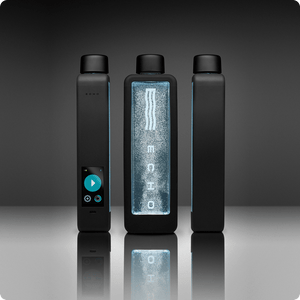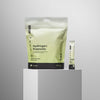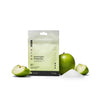You’ve probably heard the term “oxidative stress” thrown around in conversations about aging, health, or disease. It shows up in discussions about everything from heart health to brain fog, but what exactly is it—and more importantly, can anything be done to reverse it?
The short answer: oxidative stress isn’t something you “cure,” but research shows it can be reduced—and even repaired—through daily choices. Understanding how it works is the first step.
What Is Oxidative Stress?
Oxidative stress happens when your body has more free radicals than it can handle. Free radicals are unstable molecules your body naturally creates during things like metabolism, inflammation, or immune response. They’re also triggered by outside sources like air pollution, radiation, cigarette smoke, alcohol, or poor diet.
To balance these out, your body uses antioxidants—natural compounds that neutralize free radicals and help prevent cell damage. Some of these antioxidants are produced by your body (like glutathione or superoxide dismutase), while others come from your diet (like vitamin C, vitamin E, and polyphenols from fruits and vegetables).
When the balance tips—too many free radicals, not enough antioxidants—your body enters a state of oxidative stress. Over time, this can damage DNA, proteins, and lipids in your cells. It’s been linked to a wide range of health concerns, including aging, inflammation, heart disease, and neurodegenerative conditions.
Can Oxidative Stress Be Reversed?
Reversing oxidative stress doesn’t mean erasing all the damage—it means lowering the load, supporting your body’s repair systems, and slowing the cycle. According to current research, the body is remarkably capable of restoring balance when it’s given the right tools.
Your cells produce enzymes specifically designed to counter oxidative stress, like catalase, glutathione peroxidase, and superoxide dismutase. These systems are active all the time, but they can become overwhelmed when the body is under chronic stress—whether physical, emotional, or environmental.
Fortunately, studies show that lifestyle changes can help reduce oxidative stress, support repair, and even improve markers of cellular damage. This includes changes to diet, sleep, activity, and exposure to toxins. In some cases, targeted interventions—like hydrogen-rich water—are being researched as an additional layer of support.
The bottom line: you can’t eliminate oxidative stress entirely, and you wouldn’t want to (it plays important roles in signaling and immune defense). But you can reduce it—and in doing so, support healthier aging, better energy, and long-term resilience.
Science-Backed Ways to Reduce Oxidative Stress
The good news is that oxidative stress can be reduced—and your body already has built-in systems to do just that. Your job is to support those systems. Here's what the science says works best, and how you can put it into practice every day:
Eat More Antioxidant-Rich Foods
Your diet is one of the most powerful ways to reduce oxidative stress. Whole foods—especially plants—are full of natural antioxidants that help neutralize free radicals before they can do damage.
Focus on these food categories:
-
Berries: blueberries, strawberries, raspberries (rich in anthocyanins and vitamin C)
-
Leafy greens: spinach, kale, chard (high in carotenoids, vitamin E, and magnesium)
-
Nuts and seeds: almonds, walnuts, sunflower seeds (great sources of vitamin E and selenium)
Colorful vegetables: carrots, bell peppers, beets (packed with polyphenols and beta-carotene) -
Spices: turmeric (curcumin), ginger, cinnamon (anti-inflammatory compounds)
-
Green tea and dark chocolate (in moderation): both contain powerful plant antioxidants
Tip: Aim for a variety of colors on your plate—different pigments often signal different antioxidants.
Move Your Body—But Don’t Overdo It
Exercise is a double-edged sword when it comes to oxidative stress. During a workout, your body creates more free radicals. But regular, moderate activity strengthens your body’s antioxidant defenses over time.
What works best:
-
Moderate aerobic exercise: 30–45 minutes of brisk walking, cycling, swimming, or dancing, 4–5 days a week
-
Strength training: 2–3 times per week to support muscle function and metabolic health
-
Stretching or yoga: promotes circulation and lowers stress hormones, both of which reduce oxidative burden
Get Enough Quality Sleep
Your body does most of its repair work while you sleep—including clearing out damaged cells and rebalancing oxidative stress levels.
How to improve sleep quality:
-
Stick to a consistent bedtime and wake-up time—even on weekends
-
Avoid screens at least 1 hour before bed (blue light interferes with melatonin)
Keep your bedroom cool, dark, and quiet -
Limit caffeine after 2 p.m. and avoid heavy meals late at night
-
Try calming nighttime rituals like reading, journaling, or deep breathing
Sleep target: 7–9 hours of uninterrupted sleep per night
Minimize Exposure to Environmental Toxins
Everyday toxins increase your free radical load. While you can’t avoid them all, you can reduce your exposure in meaningful ways.
Simple steps you can take:
-
Avoid smoking or secondhand smoke
-
Limit alcohol—even moderate use contributes to oxidative stress
-
Choose clean household products: go for fragrance-free or natural cleaners
-
Filter your air and water if you're in a polluted area
-
Eat organic or local produce when possible to lower pesticide exposure
-
Avoid processed foods, artificial additives, and trans fats
Lower Chronic Stress
Mental and emotional stress doesn’t just affect how you feel—it triggers oxidative stress through elevated cortisol and inflammation.
Ways to lower stress effectively:
-
Practice mindfulness: even 5–10 minutes a day of focused breathing helps
-
Spend time in nature: studies show time outdoors lowers oxidative markers
-
Talk it out: social connection is a protective factor against stress-related damage
-
Limit doomscrolling and negative media—constant exposure raises stress hormones
-
Use structured breaks during work: get up, stretch, take a short walk
Supporting your body’s natural defense systems doesn’t require extreme changes—just consistent, smart choices. And when you combine these steps over time, you reduce the oxidative load on your cells, giving your body more room to repair and restore.
Hydrogen Water As A Selective Antioxidant
While nutrition, exercise, sleep, and stress management are foundational, researchers are also exploring new ways to support the body’s antioxidant systems. One of the most promising—and most studied—emerging tools is hydrogen-rich water.
Hydrogen water is regular water infused with molecular hydrogen (H₂), a gas made of two hydrogen atoms. It sounds simple, but it plays a powerful role at the cellular level.
Why Scientists Are Paying Attention
More than 1,000 peer-reviewed studies have looked at the effects of molecular hydrogen on the body. Many of them focus on how it interacts with oxidative stress. Here’s what researchers have found:
-
Hydrogen acts as a selective antioxidant
It neutralizes only the most damaging free radicals—like hydroxyl radicals—while leaving helpful ones alone. That’s a big deal, because some free radicals actually help your body function (such as immune defense and cell signaling). -
It’s extremely small and bioavailable
Hydrogen is the smallest molecule in the universe. It can pass through cell membranes and reach the mitochondria, where a lot of oxidative stress is generated. -
It may activate the body’s own defense systems
Research shows hydrogen can trigger signaling pathways like Nrf2, which boosts your internal antioxidant production. In other words, it supports your body’s ability to protect itself.
What the Research Says
Hydrogen water has been studied in a range of settings related to oxidative stress, including:
-
Exercise recovery: athletes who drank hydrogen water had lower levels of lactic acid and oxidative markers after intense training
-
Metabolic health: studies have shown improvements in insulin sensitivity, blood pressure, and lipid levels in people with metabolic syndrome
-
Cognitive support: early research suggests hydrogen water may reduce oxidative damage in brain cells, with potential applications for memory and aging
-
Skin health and aging: some studies show reduced oxidative markers in the skin, possibly supporting a slower aging process
Most studies describe hydrogen water as a supportive therapy, not a cure. It’s not meant to replace healthy habits—it’s something that may work alongside them.
How to Use Hydrogen Water
If you're curious about trying hydrogen water, here are a few key points:
-
It’s safe: molecular hydrogen has been studied extensively and is considered non-toxic at all tested levels
-
It’s easy to incorporate: you can drink it like regular water, ideally daily
-
Freshness matters: hydrogen gas dissipates quickly, so generating it on-demand (with a hydrogen water bottle or machine) gives you the highest concentration
One example is the Echo Hydrogen Water Flask, which produces high concentrations of molecular hydrogen on the spot. It’s designed to deliver the freshest, most bioavailable hydrogen possible—no tablets, no hassle.
Oxidative Stress Can Be Reversed
The science is clear. Consistent lifestyle choices like eating antioxidant-rich foods, staying active, getting quality sleep, and managing stress will reduce oxidative damage and support long-term health.
Research also points to hydrogen water as a promising addition. With its ability to selectively neutralize harmful free radicals and support the body’s own defenses, it’s becoming a valuable tool in the broader effort to manage oxidative stress.
You’re not powerless against oxidative stress. With the right habits (and a little help from emerging science) you can tip the balance back in your favor.






